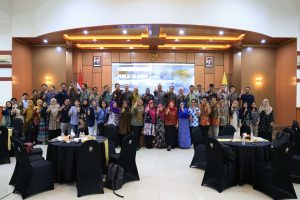
FEB Undip Gelar Public Hearing Penyusunan Visi dan Misi 2025 – 2029
Semarang – Fakultas Ekonomika dan Bisnis (FEB) Universitas Diponegoro menyelenggarakan kegiatan Public Hearing dalam rangka penyusunan Visi dan Misi serta pembahasan Draf Rencana Strategis FEB
